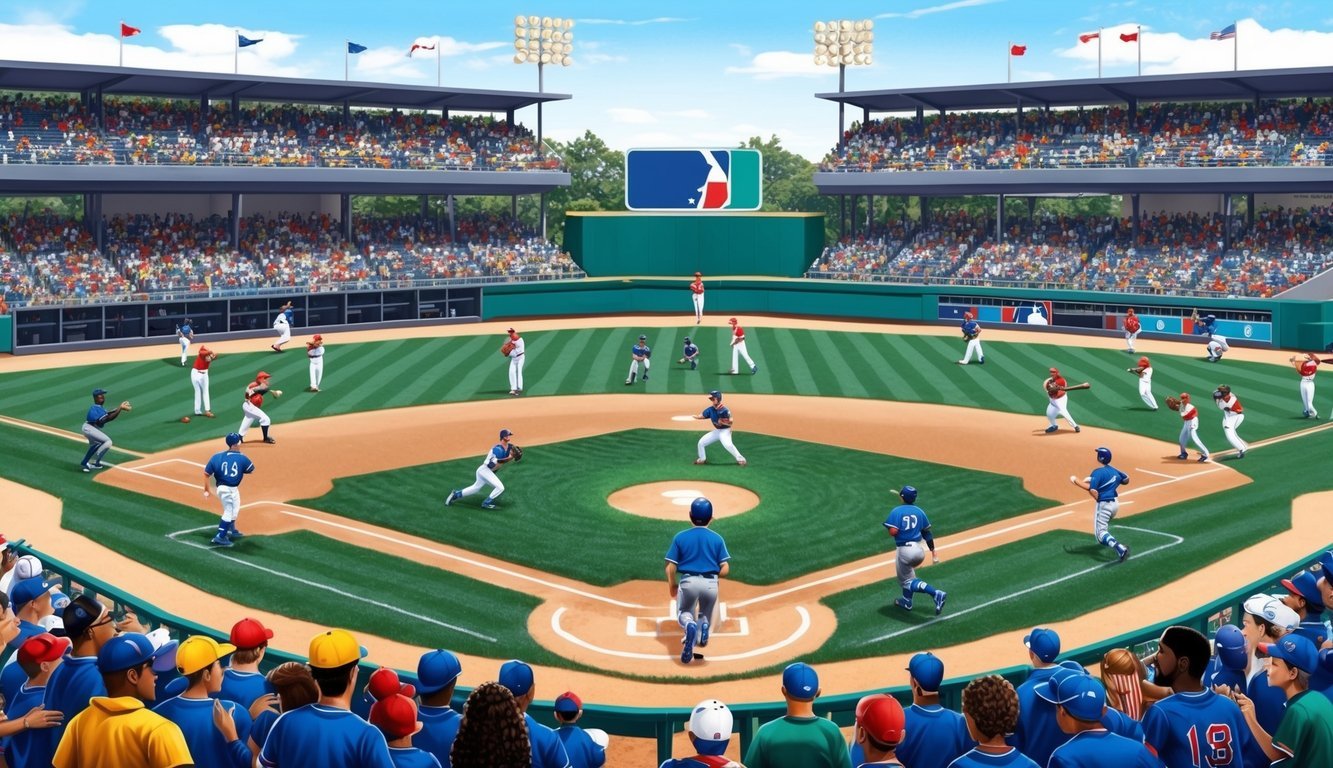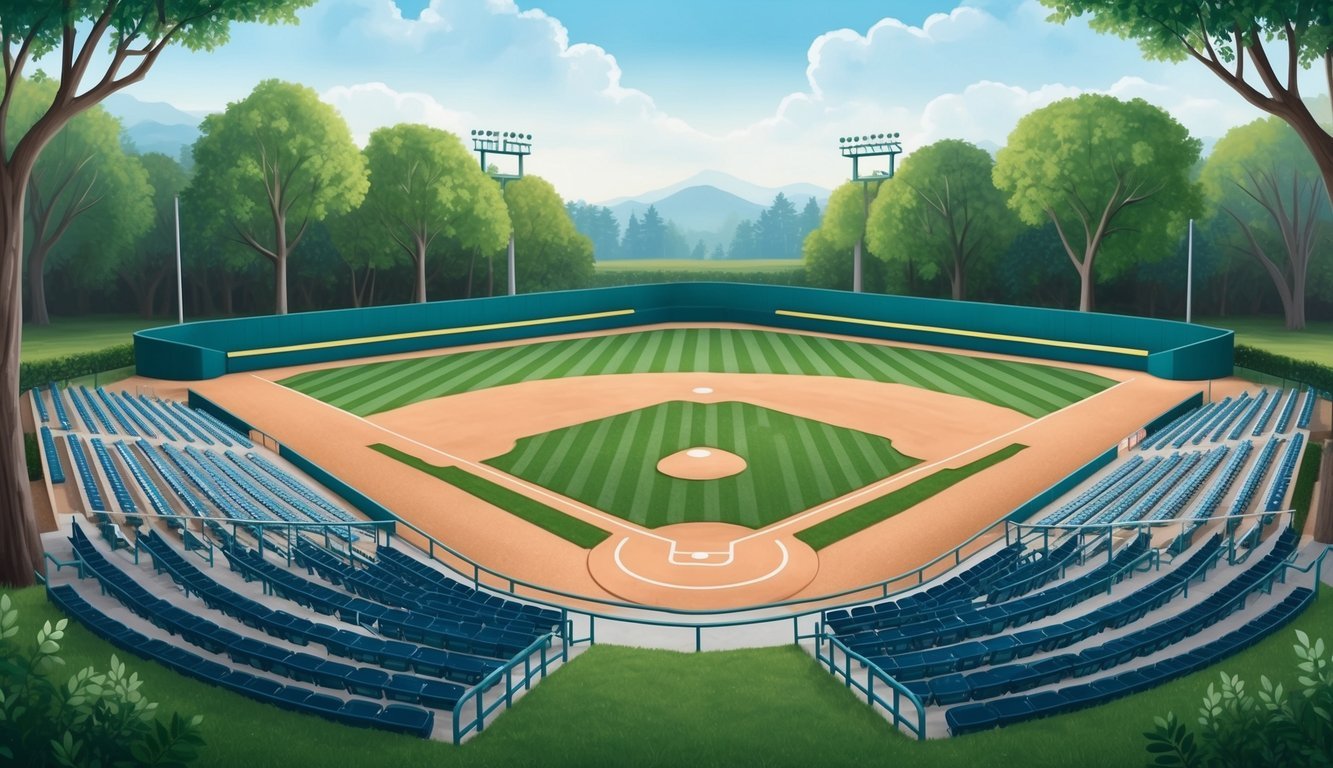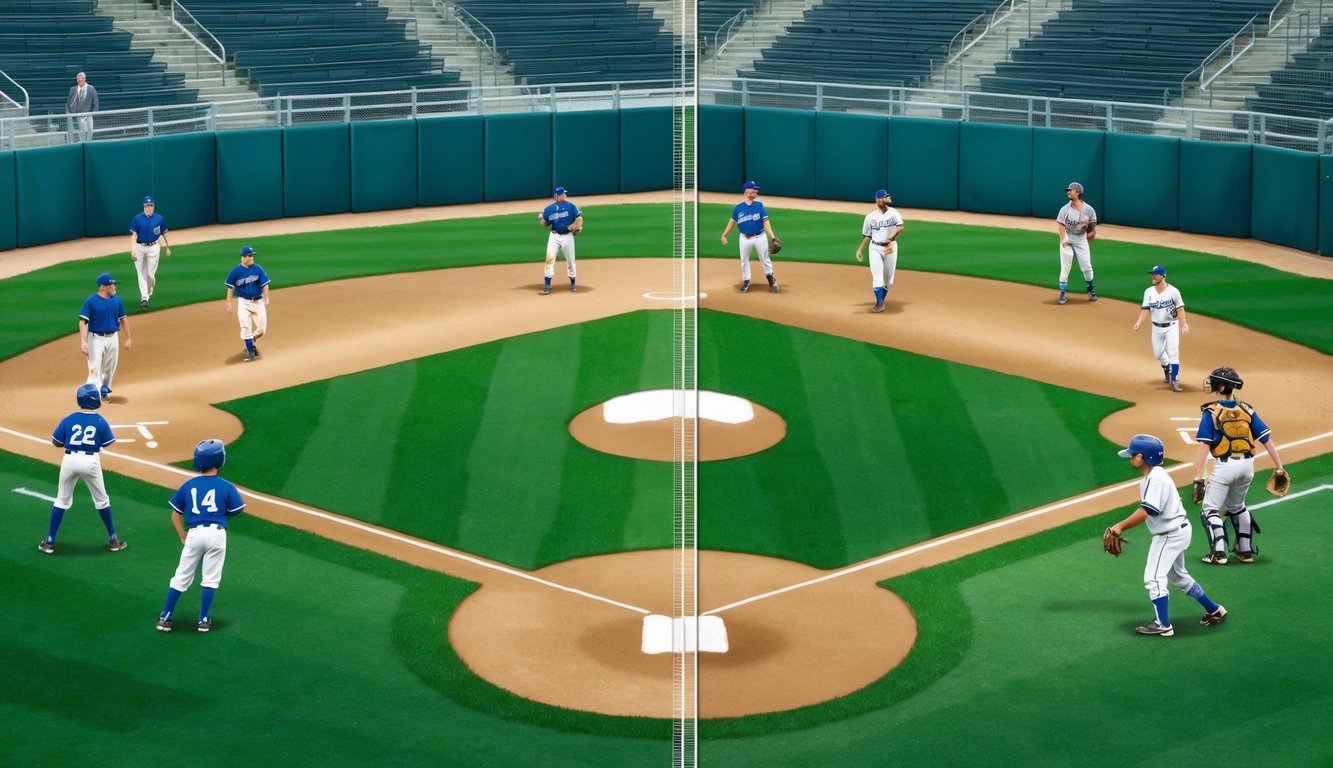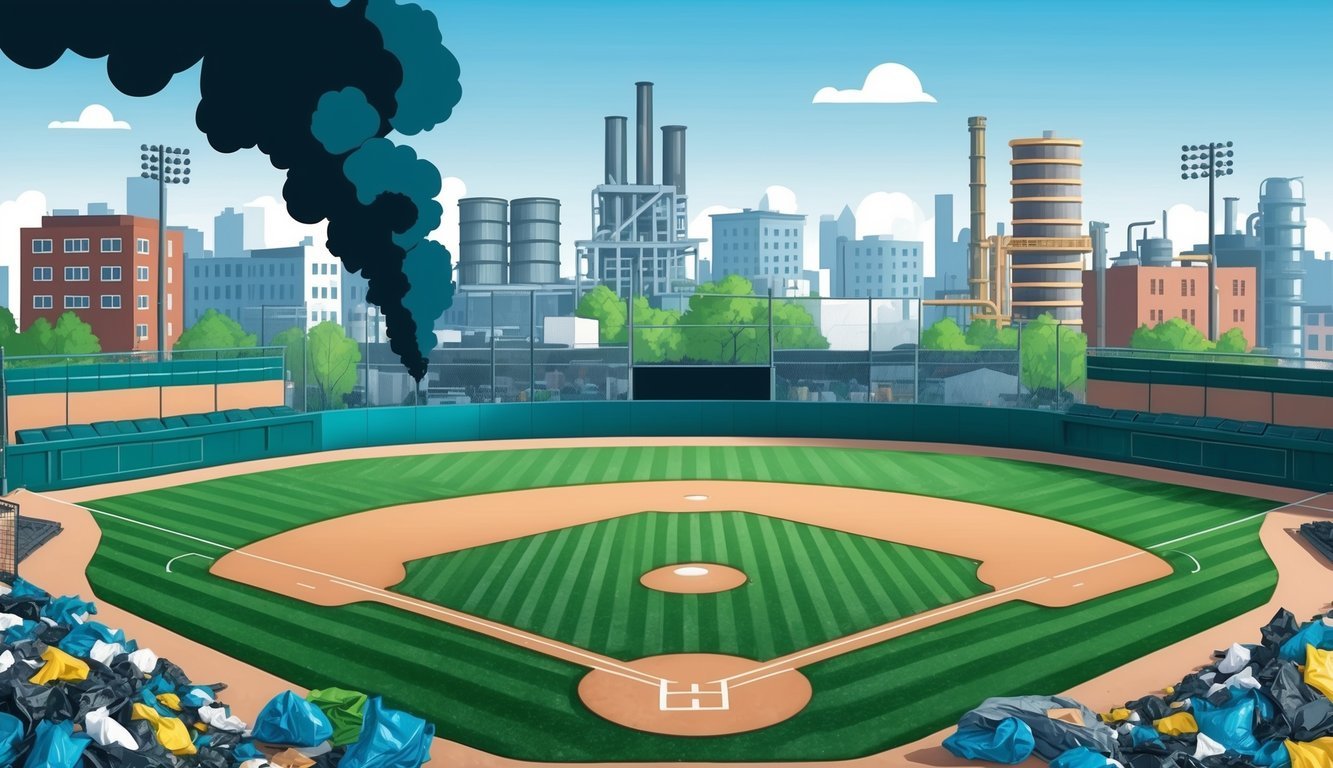Baseball has long reflected and shaped cultural movements throughout its history.
From racial integration to labor disputes, the sport has served as a microcosm of broader societal challenges.
Social issues have transformed the game, influencing player demographics, fan engagement, and the sport’s overall cultural significance.
Today, baseball continues to grapple with pressing social concerns.
Players increasingly use their platforms to raise awareness about racial injustice and economic inequality.
These actions have sparked conversations among fans, team owners, and league officials about the role of activism in sports.
As society evolves, so too does America’s pastime, adapting to changing attitudes and expectations.
The sport faces ongoing challenges in diversifying its player base and leadership positions.
While progress has been made, the percentage of African American players in Major League Baseball has declined significantly since its peak in the 1980s.
This trend highlights the complex relationship between baseball and social issues, prompting efforts to increase accessibility and opportunities for underrepresented groups in the sport.
Historical Context of Social Issues in Baseball
Baseball has long been intertwined with American society, reflecting and influencing social issues throughout its history.
The sport has grappled with racial segregation, discrimination, and the push for equality.
Breaking Barriers: The Legacy of Jackie Robinson
Jackie Robinson‘s debut with the Brooklyn Dodgers in 1947 marked a pivotal moment in baseball and civil rights history.
As the first African American player in Major League Baseball, Robinson faced immense pressure and discrimination.
His courage and skill on the field helped pave the way for other Black players to enter the league.
Robinson’s impact extended beyond baseball, inspiring progress in other areas of society.
The integration of MLB teams was a gradual process.
Some franchises were quicker to embrace change, while others resisted.
Robinson’s success encouraged more teams to sign talented Black players.
His legacy continues to inspire athletes and activists today.
MLB honors Robinson annually with Jackie Robinson Day, where all players wear his retired number 42.
Diversity and Inclusion Initiatives

Major League Baseball has implemented various programs to foster diversity and inclusivity in the sport.
These efforts aim to engage youth, amplify underrepresented voices, and create lasting change within baseball communities.
Youth Programs and Community Engagement
MLB partners with organizations like the Jackie Robinson Foundation and Boys & Girls Clubs of America to inspire young people from diverse backgrounds.
These collaborations provide educational opportunities and baseball clinics in underserved areas.
The league’s RBI (Reviving Baseball in Inner Cities) program introduces the sport to urban youth.
It offers coaching, equipment, and competitive leagues to thousands of children annually.
MLB’s “Play Ball” initiative brings baseball and softball to communities nationwide.
The program organizes free events where kids can try the sport in a fun, low-pressure environment.
Through these efforts, MLB aims to cultivate a new generation of diverse players, fans, and industry professionals.
Amplifying Voices: The MLB and Social Media
MLB uses its social media platforms to highlight diverse voices within the baseball community.
The league regularly features stories of players, coaches, and executives from underrepresented groups.
During key moments like Jackie Robinson Day, MLB’s accounts share educational content about baseball’s history of breaking barriers.
This helps fans understand the ongoing importance of diversity in the sport.
The “MLB Together” initiative uses social media to showcase the league’s commitment to social justice.
It highlights player-led efforts and community partnerships focused on equity and inclusion.
MLB also encourages teams and players to use their own social media presence to speak out on important social issues, amplifying messages of unity and respect.
Mental Health and Player Welfare

Baseball has made significant strides in addressing mental health concerns among players.
The sport now recognizes the importance of psychological well-being alongside physical fitness.
Tackling Stigma and Providing Support
Major League Baseball is working to destigmatize mental health issues.
Teams are implementing support systems for players struggling with anxiety, depression, and other challenges.
The league encourages open discussions about mental wellness, creating a more supportive environment.
Austin Meadows, an outfielder, publicly shared his battle with anxiety and depression.
His candid approach helped spark conversations across the sport.
Many players now feel more comfortable seeking help when needed.
MLB has partnered with Crisis Text Line, offering confidential support to players and staff.
This service provides immediate assistance during difficult times.
Partnerships for Mental Wellness
The league has formed partnerships to enhance mental health resources.
MLB Together, a new initiative, focuses on community engagement and player well-being.
It aims to connect fans with mental health support and raise awareness.
The MLB Players Association launched a Mental Health and Wellness Program.
This independent service ensures confidentiality for players and their families.
It offers counseling, therapy, and other mental health services.
During Mental Health Awareness Month, teams host special events and share educational resources.
These efforts help normalize discussions about mental health in baseball and beyond.
Social Justice and Equity

Baseball has become a platform for addressing important social issues.
The sport has taken steps to promote inclusivity and respond to calls for racial justice, reflecting broader societal conversations.
Inclusive Practices in the MLB
Major League Baseball has amplified its commitment to diversity, equity, and inclusion.
The league created new initiatives to reach fans and communities following the events of 2020.
MLB launched programs to increase representation of underrepresented groups in front offices and on-field positions.
The league established partnerships with organizations focused on social justice.
These collaborations aim to create more opportunities in baseball for people from diverse backgrounds.
MLB also expanded its youth baseball and softball programs in underserved areas.
Teams have implemented training on unconscious bias and cultural competency.
Many clubs now celebrate Pride nights and host heritage events to honor various cultures.
Solidarity and Response to Racial Injustice
Players have used their platforms to raise awareness about racial injustice.
In 2020, several MLB games were postponed as players joined protests against police brutality.
Teams and players participated in symbolic gestures, like kneeling during the national anthem.
MLB allowed players to wear social justice messages on their uniforms.
The league placed “Black Lives Matter” logos on pitching mounds.
Teams donated to organizations fighting for racial equity.
Players formed the Players Alliance, a group of current and former Black players.
They work to create opportunities in baseball and address racial inequalities.
The alliance organizes equipment drives and mentorship programs in Black communities.
Environmental and Health Advocacy

Baseball has emerged as a powerful platform for promoting environmental sustainability and health awareness.
MLB and players alike are taking steps to address pressing issues that affect both the sport and society at large.
Initiatives such as recycling programs in stadiums and eco-friendly practices in team operations are becoming standard.
Furthermore, the integration of health awareness campaigns within the league’s schedule has allowed MLB to reach a broader audience, emphasizing the importance of well-being alongside athletics.
As fans engage more deeply with these efforts, discussions around game dynamics, including the MLB shift rule changes explained, have also gained popularity, highlighting the evolving nature of the sport and its connection to societal trends.
Sustainable Practices and MLB Green
MLB Green leads the charge in making baseball more eco-friendly.
This initiative focuses on reducing the environmental impact of games and stadiums.
Teams have installed solar panels and implemented recycling programs at ballparks.
Some stadiums now use drought-resistant grass to conserve water.
Players are joining the cause too.
Many use reusable water bottles and encourage fans to do the same.
Some stars have even invested in sustainable clothing lines made from recycled materials.
MLB has also partnered with local organizations to plant trees in communities.
These efforts help offset carbon emissions from team travel and stadium operations.
Health Research and Awareness Campaigns
Baseball’s influence extends to promoting health and wellness.
Stand Up To Cancer partners with MLB to raise funds for cancer research.
During the World Series, players, coaches, and fans hold up placards with names of loved ones affected by cancer.
Mother’s Day sees players swinging pink bats to support breast cancer awareness.
On Father’s Day, blue wristbands and decals highlight prostate cancer education.
Childhood Cancer Awareness Day features gold ribbon decals on helmets and bases.
Lou Gehrig Day honors the legendary player while raising funds for ALS research.
MLB also supports disaster relief efforts, providing aid to communities affected by natural disasters.
These initiatives showcase baseball’s commitment to health and community well-being.
